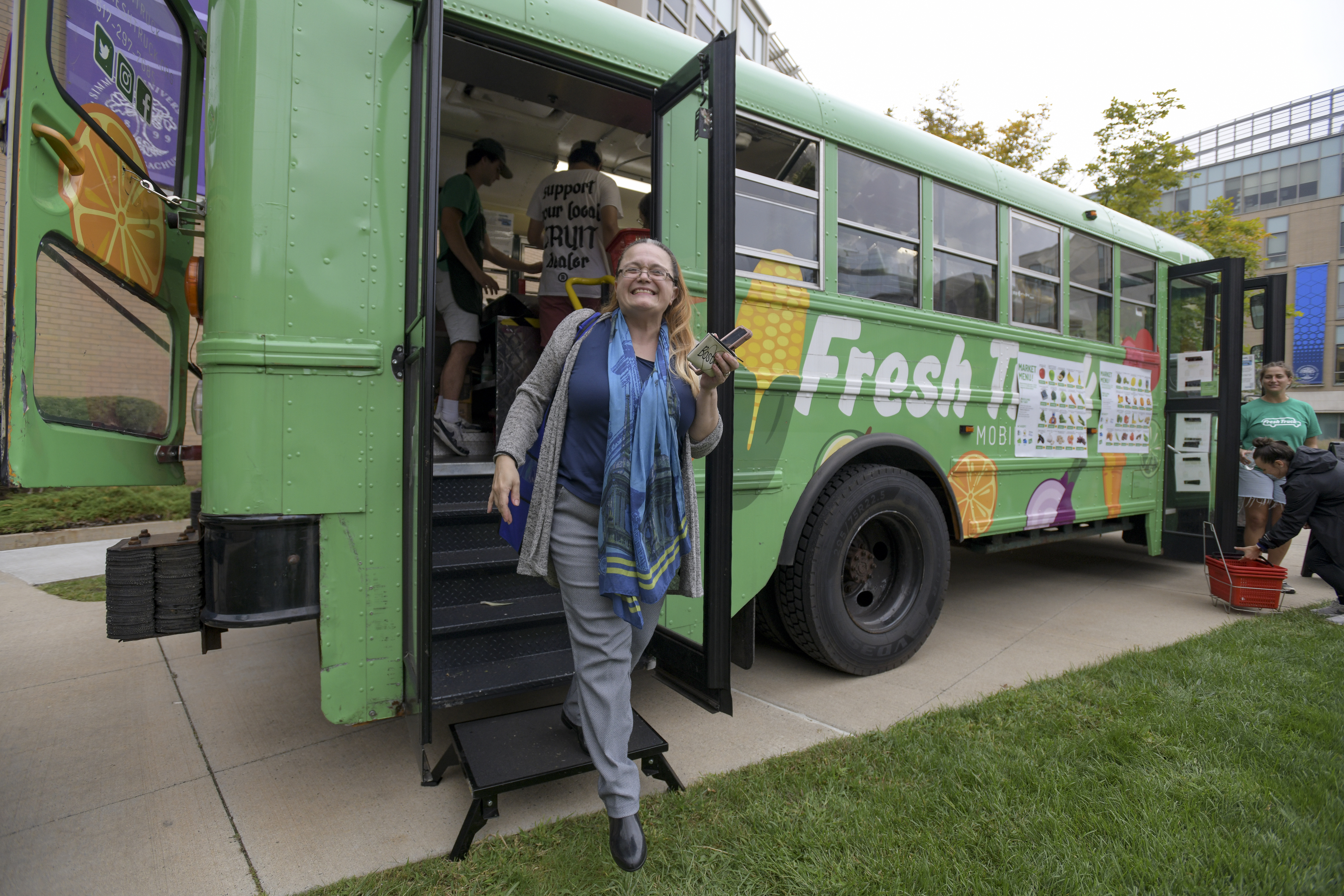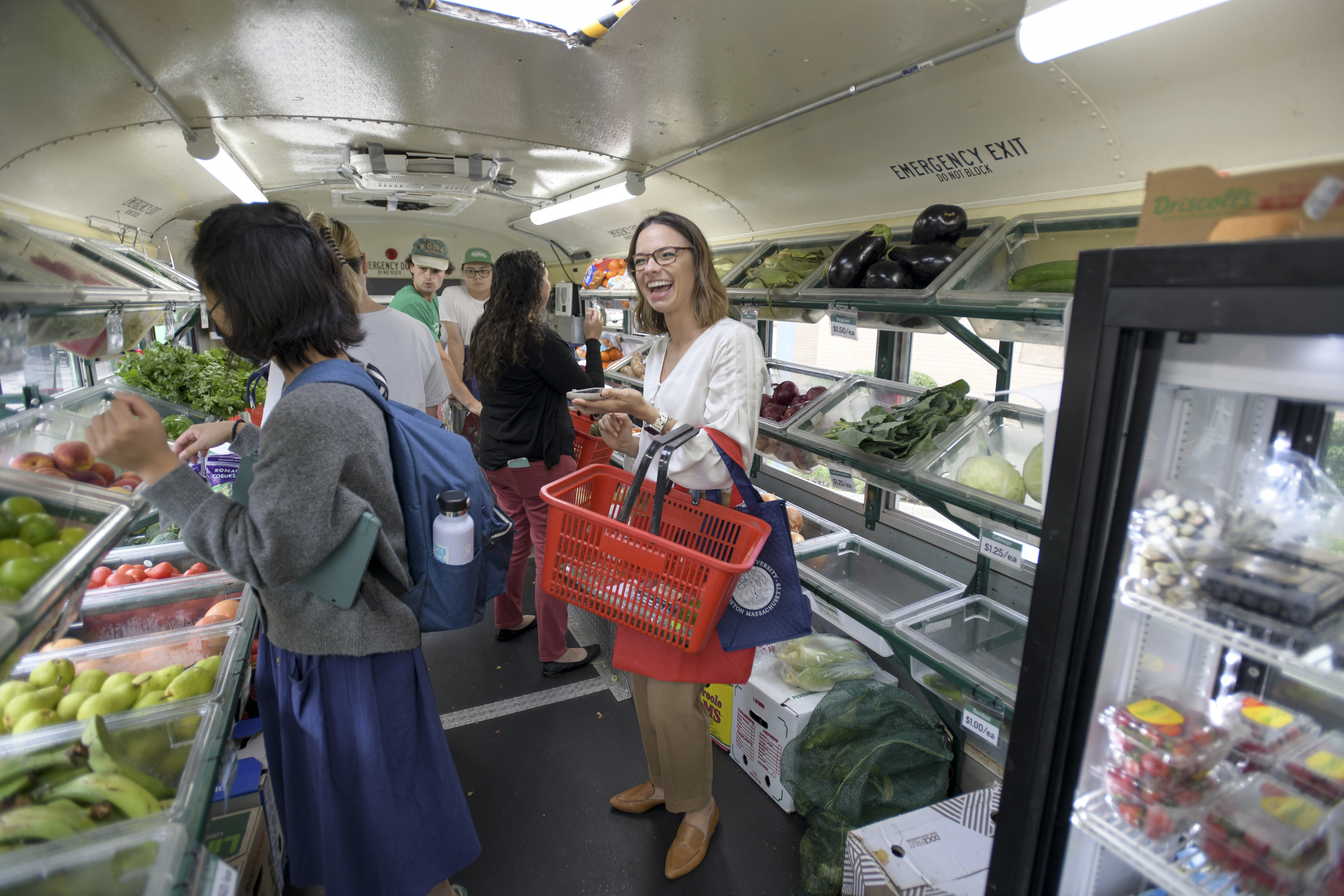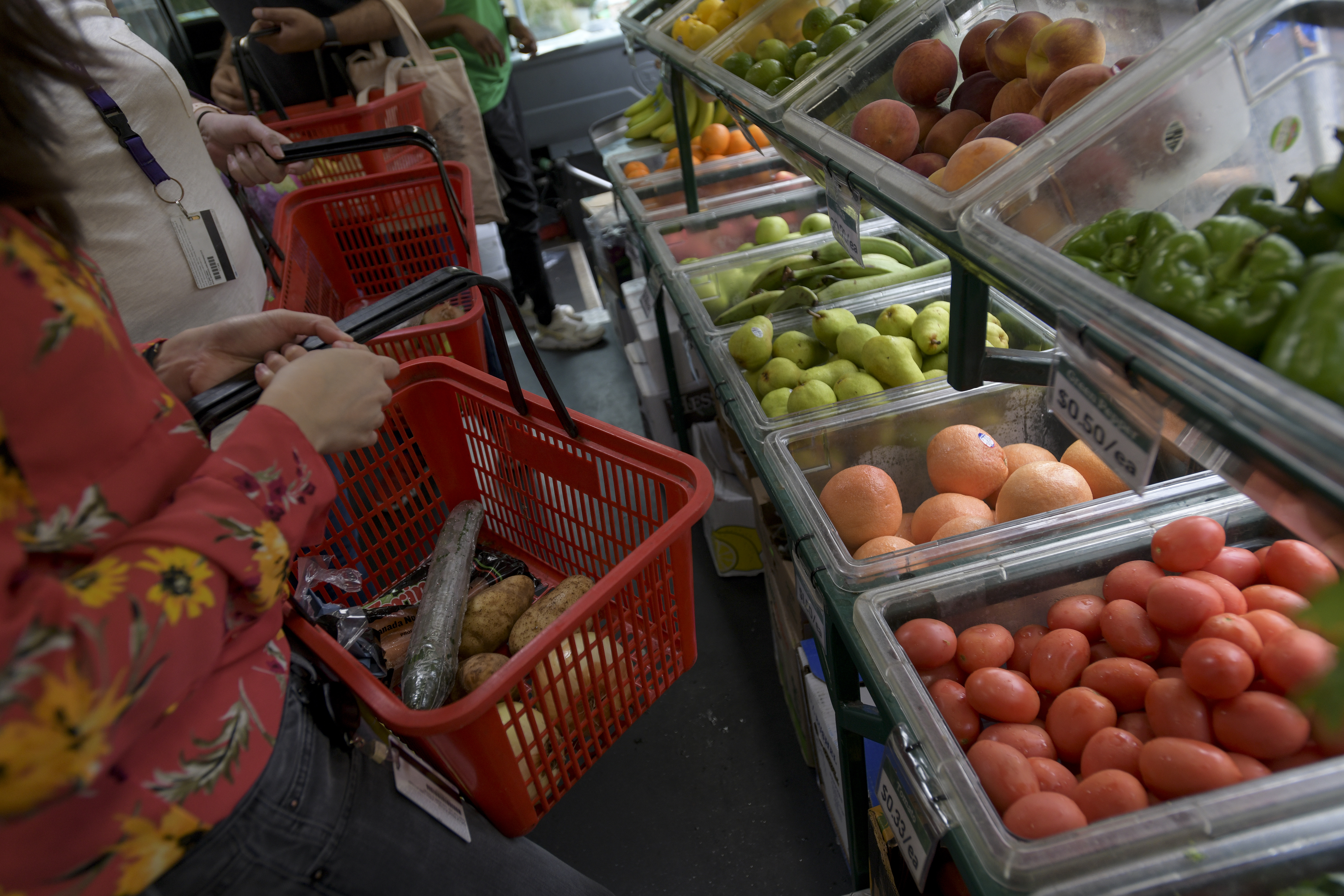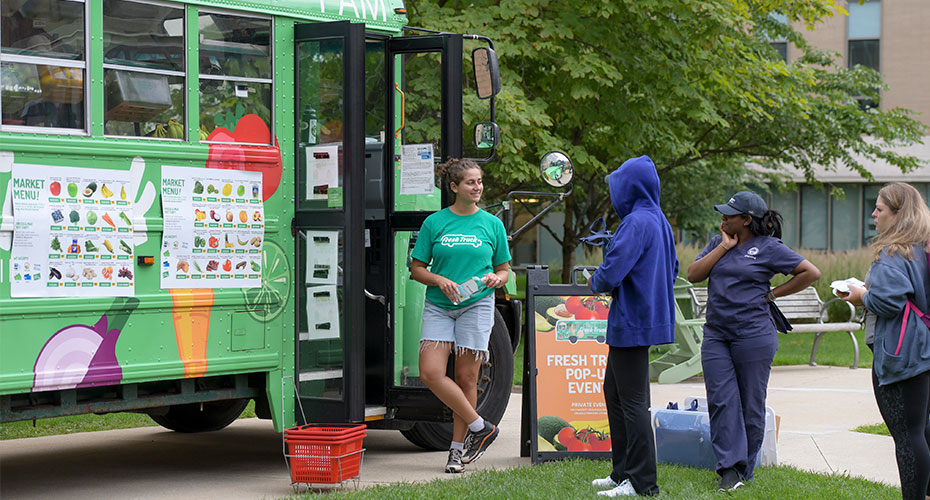Nov 2, 2022
Eating well and doing good
This fall, a school bus is coming to Simmons University in Boston, but it isn’t carrying students—it’s transporting fresh produce to the Simmons community.
The bus is from a nonprofit organization called Fresh Truck that aims to bring affordable, healthy food into food deserts, and the effort is part of an innovative wellness program for university employees.
“This is one of our most popular wellness events and the one we get the most positive feedback on,” said Simmons Director of Benefits and HR Operations Christina Webber.

The bus comes to campus three times during the fall and spring semesters, and Simmons faculty, staff and students each get $5 toward their purchases. This money, plus a fee to host the bus, comes from wellness credits the university receives from its health plan, Blue Cross Blue Shield of Massachusetts, and goes directly to support Fresh Truck’s mission.
“This is really a win-win for our employees and Fresh Truck,” Webber said. “Our faculty and staff absolutely love getting locally sourced fresh fruits and veggies and taking a break in their day to go to the quad and see their colleagues. Simmons is committed to advancing equity and social justice, and our employees are grateful to be able to make a contribution to the community.”
And the university wins by promoting healthy food choices among its employees.
“Our main goal is to help people become more conscious of their nutritional choices and provide easy access to low-cost, healthy options, especially as we approach the holidays, when it can be hard to make those healthy choices,” Webber said.

The power of produce
Providing access to fresh produce pays big dividends in the workplace, said Blue Cross Blue Shield of Massachusetts dietitian Nancy Dowling.
“Anything that makes it easier for people to eat a plant-based diet is a great step,” she said. “Fresh fruits and vegetables like the kind Fresh Truck provides are the foundation of a healthy diet because you are eating food in its natural state.”
The U.S. Department of Agriculture’s Center for Nutrition Policy and Promotion recommends adults get 6-11 servings of fruits and vegetables each day, and studies show that eating a plant-based diet can improve health outcomes for people with chronic conditions such as Type 2 diabetes, hypertension and cardiovascular disease.
The basis of nutrition is colorful eating, because those colors indicate different nutrients, such as vitamins, minerals, protein, antioxidants and fiber that we need for our body to function at its best.

Dowling said
For instance, she notes that dark, leafy greens, nuts and dry beans are great sources of iron, magnesium and potassium.
Foods such as sweet potatoes, spinach and carrots are high in vitamin A, which promotes cell growth and development, bone development and immune system functioning.
And red peppers, oranges, grapefruit, kiwis, broccoli and strawberries are high in vitamin C, which helps your body form collagen, a protein needed for strength and flexibility that repairs tendons and ligaments and strengthens bones.

Dowling offers the following tips to add more produce to your diet:
- Fill your plate: Dowling says half of a 9” dinner plate should be filled with water-based veggies (think of those you find in salad).
- Try something new: Pick up a new fruit or vegetable at the grocery store to try. Right now, Dowling is enjoying bunches of multicolored carrots.
- Try a new preparation: Take a favorite vegetable and try it in a new recipe or preparation, such as roasted or mashed.
- Make veggies visible: Put washed and cut veggies in a dish at the front of your fridge so you reach for them first.
- Sneak in veggies: Tuck veggies into sandwiches, snack on bell pepper hummus “boats,” or put out a tray of veggies before dinner.
- Go meatless on Mondays: At least one day a week try eating ancient grains (such as barley, couscous or quinoa), beans and plenty of veggies.
“Eating more fruits and vegetables is a great way to improve your health. Spending a little extra money on these whole foods now can pay huge dividends for your health in the future.”
Dowling said
Did you find this article informative?
All Coverage content can be reprinted for free.
Read more here.
PHOTOS BY FAITH NINIVAGGI

